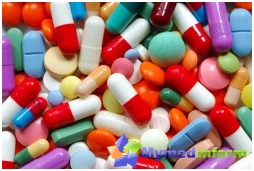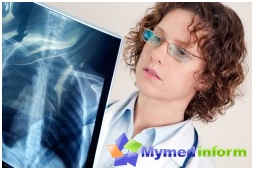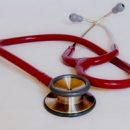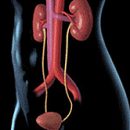Boyfield - Microflora

The fundamental concept in the problem of dysbacteriosis - intestinal microflora. Under the microflora, they mean those microorganisms that are permanent inhabitants of any healthy person. Dysbacteriosis - pathological changes in the quantitative composition and quality of activity of intestinal microflora.
Microflora of each of us is unique exactly as the lines on the palms. The state of the internal intestinal environment is closely related to general well-being: microflora directly depends on human health. The composition of it may vary under the influence of many factors: age, season, the specifics of food, climatic characteristics of the area.
For what is needed microflora
Microorganisms in the intestine are not «Surrive», How it may seem at first glance, and the real guards of the health of our body.
First, intestinal bacteria protect a person from dysentery, salmonellosis and other infectious diseases. Useful microorganisms produce natural antibiotics, with the help of which the body and opposes infectious attacks.
Secondly, intestinal microorganisms take the most direct participation in digestion - They are engaged in proteins, fats, carbohydrates and fiber, splitting them on useful and energy elements. Also, healthy microflora helps fully absorbed vitamins.
Thirdly, useful bacteria neutralize harmful toxins, which are allocated during the combustion of food in the body.
Fourth, a healthy intestinal microflora is an internal protective reserve of the entire human immune system. It is in the intestines that there are more than 65% of immune cells. Therefore, as soon as the state of the intestine changes for the worse, weakens and the resistance of a person with various unfavorable factors.
The main causes of dysbacteriosis

With light shapes of the disease, you can return the intestinal microflora to normal, eliminating the cause, which caused it (for example, to adjust its food habits). Cases of frequently emerging or chronic dysbacteriosis require a more careful patient's attitude to their health and steady treatment. What can a doctor appoint?
Functional diet, Prebiotics and probiotics Stimulate the process of restoring the internal intestinal environment.
Functional diet It implies consumption of sufficient quantity of fruits and vegetables, cereals and algae, soy milk. These products are contained for normal life-needed bacteria food fibers, pectin and amino acids (glutamine and arginine). Kefir, natural yogurt and cottage cheese also make an invaluable contribution to your health - bifido- and lactobacilli.
Prebiotics - Provide the presence of a nutrient medium for normal microflora. This group of substances is represented by inulin, lactulose, galactose, fructose isomers. They are rich in dairy products and cereals (wheat and corn, onions and garlic, chicory). You can also resort to drugs from a pharmacy by purchasing a dofalak (the main active ingredient - lactulose) or one of the set Badov: Lactusan, normal.
Probiotics - Preparations that contain live cultures of microorganisms. There are monocomponential and polycompensate. The first includes only one representative of the main or accompanying intestinal microflora (lactobacterin, colibacterin, bifidumbacterin). Treatment time is 4-6 weeks. The composition of polycomponent probiotics (symbiotics) is represented by several representatives of the main or accompanying microflora (bificol, bifiform, lines). They are accepted within 14 days.
Antagonists - Microorganisms that do not have a significant effect on the main microflora, but suppress the activity of conditionally pathogenic bacteria. To this group belongs to enterol, Bactorin, Baktisubtil. Treatment lasts up to 7 days.

Sybiotics - Combined substances (bifido-tank, maltodophilus, laminolact). Their composition includes prebiotic and bacteria of the main group. Take them over 3 weeks.
Intestinal antiseptic drugs. Almost not absorbed by the intestines, suppress the active life of pathogenic microorganisms, without harming the main microflora. The most popular representatives of this group of drugs - Intotrix and Nifuroksazid (Enterofuril). Intotriks take from 3 to 5 days - 3 times a day 2 capsules, abundantly drinking water. The course of treatment with nifuroxazid is 7 days, adults take 4 times a day of 200 mg.
Antibiotics. The doctor prescribes them if the form of dysbacteriosis is reliably known, while the spectrum of the sensitivity of microorganisms is taken into account. For example, the staphylococcus acts on the macrolides (clarithromycin), semi-synthetic penicillins (oxacillin, amoxicillin), and protein is sensitive to nitrofurans.
Bacteriophages represent viruses that affect certain microorganisms. Their reception can be combined with the course of antibiotics. Take inside or with the help of enema.
Polyvitamins (Decadevit, Multitabs, Supratine) are assigned to all forms of dysbiosis.
Immunomodulators. Dysbacteriosis always accompanies violations of local immunity, so with the help of immunomodulators you need to stimulate the restoration of the microflora balance by strengthening the entire body. Here the choice is quite wide: the tincture of Eleutherococcus, propolis extract, Tincture Echinacea And Lemongnik.
Prevention of intestinal dysbacteriosis

The main reason for the pathological change in the intestinal microflora is the wrong method of antibacterial drugs. Unfortunately, the culture of self-medication in our country is very poorly developed, so many citizens with antibiotics are treated even a runny nose. These drugs can be taken only on the prescription of the doctor, after the results of the bacteriological examination and the results of the antibioticogram. If there is a long admission of drugs of the antibacterial group, treatment must be complemented by prebiotics.
Proper healthy nutrition - foundation for full intestinal work. There is a little one, 4 times a day, never drink food with water. On the table all year round should be parsley, dill and other greens - it «Hands up» Normal microflora and helps it withstand the onslaught pathogenic bacteria. Efficious food and fresh vegetables, rice, wheat, buckwheat enhance the rehabilitation properties of the inner intestinal environment, and apple puree is a natural prebiotic required for the development of the intestinal intestines of microorganisms.
For normal state of intestinal microflora MyMedinform.COM recommends that the health of the gastrointestinal tract and develop all the disease in a timely manner, not allowing them to acquire a chronic form.









